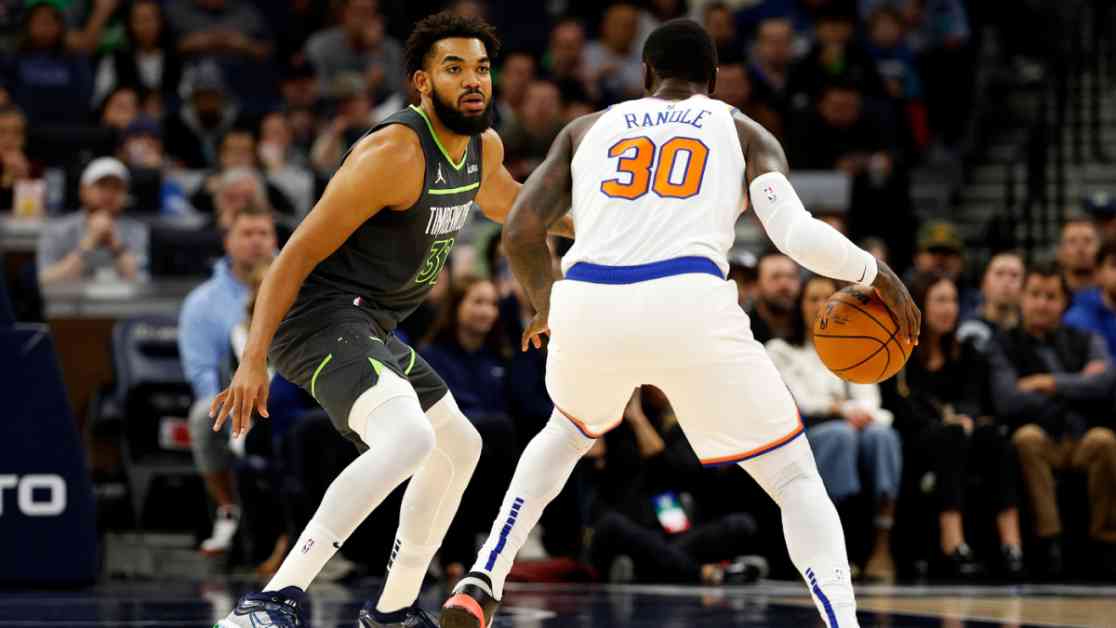The trade between the New York Knicks and the Minnesota Timberwolves involving Karl-Anthony Towns is a monumental move that has shocked the NBA world. Both teams, with championship aspirations for the 2024-25 season, made bold decisions to drastically reshape their rosters just days before the start of training camp. This blockbuster deal has sparked debate and analysis on the motivations behind the trade and how it will impact both teams moving forward.
### New York Knicks: B+
The New York Knicks addressed two significant issues with this trade. The first was the need for a reliable center, given Isaiah Hartenstein’s departure in free agency and Mitchell Robinson’s injury concerns. Tom Thibodeau’s teams traditionally rely heavily on size, making it essential for the Knicks to secure a center for the upcoming season. The acquisition of Karl-Anthony Towns not only fills this void but also provides versatility as Towns can play both power forward and center positions.
Additionally, the Knicks addressed the long-term concern of Julius Randle’s contract. While Randle is a three-time All-Star, his playing style as a ball-dominant forward may not have been the best fit for a team centered around Jalen Brunson. Towns, with his exceptional shooting ability for a big man, brings a new dynamic to the Knicks’ offense. His presence will create spacing and scoring opportunities, benefiting players like Josh Hart and Deuce McBride.
Despite losing Donte DiVincenzo in the trade, the Knicks believe that Towns’ skill set and fit within their roster outweigh the losses. While there are concerns about Towns’ defense, the Knicks have the personnel to mitigate any issues, with Robinson providing rim protection and a strong perimeter defense led by players like OG Anunoby and Mikal Bridges. The Knicks have made a significant talent upgrade with this trade, positioning themselves as serious contenders in the Eastern Conference.
### Minnesota Timberwolves: B+
The Minnesota Timberwolves made a tough decision to trade Karl-Anthony Towns, recognizing the challenges of the new collective bargaining agreement and the need to make strategic moves to remain competitive. Towns, locked into a max contract for four more years, presented financial constraints that the Timberwolves had to address. The team opted to trade Towns to create flexibility and potentially improve their roster composition.
In acquiring Julius Randle, the Timberwolves secured a cheaper alternative at the power forward position, allowing them to reallocate resources and potentially address other needs. Randle’s playmaking abilities and scoring prowess will complement players like Anthony Edwards and Rudy Gobert, providing much-needed offensive firepower for the Timberwolves. While there may be a drop in shooting efficiency compared to Towns, Randle’s impact on the team’s offense cannot be understated.
The Timberwolves’ decision to trade Towns reflects a strategic move to enhance their roster flexibility and financial stability. By acquiring Randle, a player on a shorter contract with a player option for the 2025-26 season, the Timberwolves have positioned themselves to make further adjustments based on the outcome of this trade. With a young core of Edwards, Jaden McDaniels, and others, the Timberwolves have the foundation to build a competitive team for the future.
### Conclusion
The trade between the New York Knicks and the Minnesota Timberwolves involving Karl-Anthony Towns is a significant moment in NBA history, showcasing the willingness of both teams to make bold moves to improve their rosters. While the Knicks have addressed their center position and long-term concerns with this trade, the Timberwolves have created financial flexibility and added offensive firepower with the acquisition of Julius Randle. Only time will tell how this blockbuster deal will impact both teams’ championship aspirations, but one thing is certain: the NBA landscape has been forever altered by this trade.












